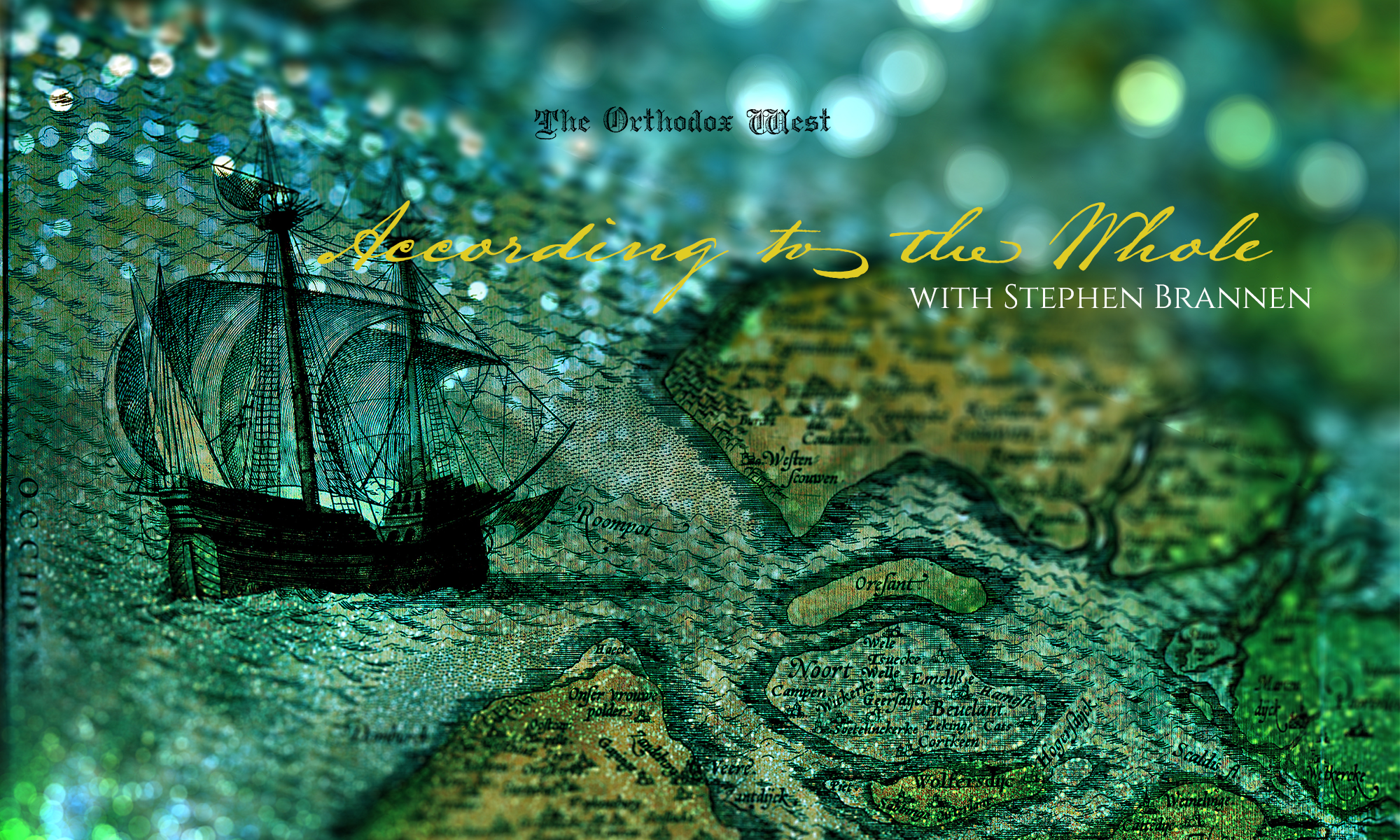My birthday is on February 14th. Any time I tell someone that, they immediately remark about how that’s Valentine’s Day. “Oooh, a Valentine baby!” “Do you get birthday presents and valentines?!” “Wow, is that weird having your birthday on Valentine’s Day?” It’s only weird when I have to field questions like those.
I think it’s amazing that so many people have this date memorized. Like December 25th or the 4th of July, the calendar date immediately conjures the association with the holiday. And there are precious few holidays that the average Westerner can think of with a Saint’s name attached to it. The only two I would bet on are the feasts of St. Valentine and St. Patrick. True, the “St.” part of “St. Valentine’s Day” is normally left off, but it’s still there in a silent, implied kind of way.
Why, of all the Saints on the liturgical kalendar, do these two have the distinction of having their commemorations preserved (if only in the most etiolated, shallow ways possible) in this our secularized, commercialized Western culture? Obviously St. Valentine’s association with romance and St. Patrick’s association with Ireland have inspired popular traditions and aesthetics that continue to capture peoples’ imaginations. Apparently these traditions have filled some cultural needs, especially in America. But why aren’t any of the multitude of other Saints and their various associations (Andrew the Apostle for fishing, St. Joseph for crafting/labor, St. Sebastian for athletics) maintained in popular observance like these two?
If you thought I was leading up to an answer, you’d be wrong. I have no idea why these two Saints and their days have hung on in secular culture with such popularity. Even in the Church we know very little about St. Valentine. We know that he was real, was a priest, and was martyred in the 3rd century under the emperor Claudius II (though there was also a bishop named Valentine martyred in Rome in the same century, and their stories are often mixed up). In the 5th century, Pope Gelasius I set his feast day on February 14th. The eventual association of Valentine with romance seems to come from a legend that his initial arrest by the Romans was for his illegally marrying Christian couples (as recorded in the Nuremberg Chronicles, 1493) and also from the medieval idea that birds would chose their springtime mates by mid February, i.e. St. Valentine’s Day (as noted in Geoffery Chaucer’s Parlement of Foules). Saint Patrick we know much more about. His history and hagiography are much better attested, and his eventual moniker “The Apostle to the Irish” and his role as that nation’s primary patron are well deserved.
But as I noted, the popular observances of these two Saints’ days in secular culture has very little to do with the actual Saints. The cynic would say that the the Saints are completely incidental to what has in effect become simply a celebration of romance (or maybe the commercialization of romance) and of Irish culture (or maybe just an excuse to drink a lot). I don’t think the Saints are completely incidental, though; I highly doubt celebrations with these characteristics would have evolved on their own, without the founding characteristics of the Christian feast days. However low secularism may want to demote these Saints on their own days, their fame is inextricable from the days which boldly bear their names.
As I see it, this presents a unique opportunity for the Church to remind the world where their celebrations come from. On the one hand, “whatever is true, whatever is honorable, whatever is just” etc. about these celebrations, we can step in along side of and join in with, establishing an important fraternal bond between us and our surrounding culture, that is, our neighbors. On the other hand, the deformations of the secular observances can be contrasted all the more sharply and fruitfully against our demonstrations of how to properly honor these Saints. Instead of boundaryless romance the Church holds up the ideals of Christian marriage. Instead of drunkenness the Church promotes moderation and holy celebration. And most importantly, the Church reminds the world that it’s the self-sacrificial love of these Saints for the sake of Jesus Christ that is the real center and cause of these occasions.
Finally, it’s the Western Catholic tradition that has given us our dates and traditions for Valentine’s Day, St. Patrick’s Day, and All Hallow’s Eve, and our names for Christmas and Easter. These are now unshakably a part of our American culture. It’s unlikely that the February 14th commemoration of St. Auxentius is going to supplant St. Valentine, or that the cultural traditions of Valentine’s Day will be transferred to his Eastern commemoration on July 6th. But instead of being ignored or shrugged off by the Orthodox Church in the West, these days need the Orthodox touch, the Orthodox life to inform them. And the Western Rite, with its Western kalendar in sync with the observances of the surrounding culture, is uniquely placed to speak into this situation. Joe Schmo has heard of St. Valentine and St. Patrick, but he needs to be shown why their lives are truly worth celebrating.

